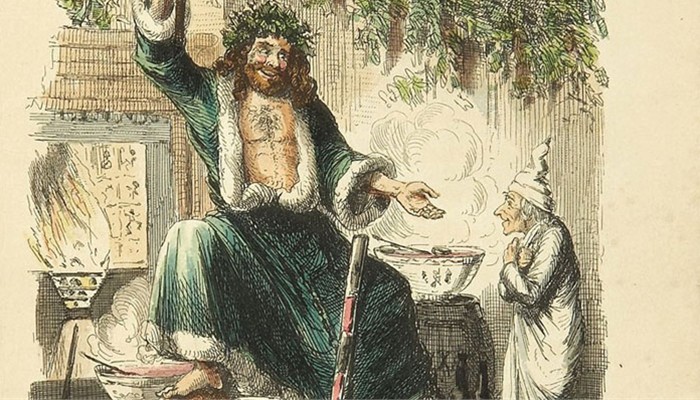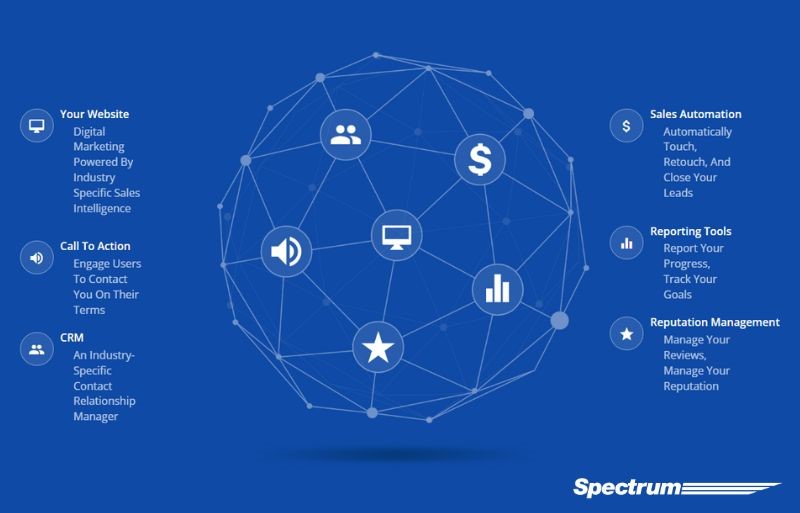Meet the Internet’s Ghost of Christmas Past, Present & Yet to Come

One Christmas Eve, three ghosts paid ol’ Ebenezer Scrooge a visit. They made him realize two things:
1) He’s been bad and 2) being good is much more rewarding.
In so many words, that’s what Matt Cutts has been telling people who try to scrooge Google (i.e., get to the top of a search page unethically, using sleazy, no-good black hat SEO tactics).
Let’s face it, the Internet’s a tempting place to cut corners and Google, with all its billions of users, is the perfect platform to exploit if you’re trying to get your business noticed.
As the head of Google’s Webspam team, Matt Cutts leads a brigade of computer engineers in the fight against black hat SEO. Their primary weapons: computer algorithms and manual reviews.
So, if you’re an Internet grouch, a user, or a plain Google abuser, meet Matt Cutts, your Ghost of Christmas Past, Present and Yet to Come all in one.
Why should you care about Matt’s work?
In addition to keeping the Internet safe (he wrote the first version of Google’s family filter, SafeSearch), Matt and his team ensure that Google is fair for everyone... including you.
Google’s mission, ultimately, is “to organize the world’s information and make it universally accessible and useful.” Google does this by constantly indexing new content, which it then ranks based on several factors, including the number of people that link back to it. The more backlinks a webpage has the more valuable it is to searchers. The higher your page’s value, the higher your page will rank on Google.
Black hat SEO messes this system up.
When Scrooges use black hat SEO tactics like keyword stuffing, hidden text, and unnatural links to bypass Google’s quality standards, Matt’s team has to step in to ensure that diligent webmasters who play by the SEO rules get to see the fruits of their labor.
When people muscle their way to top of Google, it makes it harder for searchers to find what they’re looking for on the Internet – it makes it harder for consumers to find business owners who are investing time, effort and money in doing SEO the right way, the fair way.
Much like the apparitions that visit Ebenezer in A Christmas Carol, Matt Cutts and his team serve to spell out the dos and don’ts of human decency – they just do it online.
Why do people scrooge Google & what are the consequences?
If you know what you’re doing, black hat SEO can be very effective.
It’s a good way to increase your website’s visibility on Google. It’s also a good way to get your website banned altogether.
Black hat tactics (see below) will speed up your Internet marketing campaign and put your product or service in front of more eyeballs. Of course, there’s a catch: Your exposure will be very temporary.
Matt will likely pay you a visit
send you an email warning you to stop what you’re doing (i.e., start over the right way). If you don’t, he’ll
erase your website from the world’s largest search engine.
Black hat tactics may technically work, but legitimate businesses are always better off doing SEO correctly. Because if your business depends on a steady flow of quality leads, getting shut down by Google is one of the worst things that can happen to it.
Being bad...
Sometimes knowing what to avoid can be just a useful as understanding what to strive for.
Even if cheating the Internet marketing system never crossed your mind, familiarizing yourself with the following techniques will provide you with a good frame of reference:
Sneaky Redirects: The electronic equivalent of a bait-and-switch, a link that promises one thing in the text but brings people to an unrelated landing page offers little, if anything, when it comes to value.
Webpage Keyword Stuffing: Although the introduction of Hummingbird has effected the significance of keywords, they’re still a major piece of the Internet marketing puzzle. Keyword stuffing occurs when the same highly searched word appears on a webpage over and over and over and over. Doing so can mislead the search algorithm into believing the page is more valuable to searcher than it really is.
Image Keyword Stuffing: Black hatters will insert long strings of keywords they want to rank for in the titles and captions of images on their website. Google doesn't approve.
Unnatural Outbound Links: Selling links that are “unnatural, artificial, deceptive or manipulative” to people who want the SEO value those links provide is another deceptive practice Google frowns upon.
Unnatural Inbound Links: The buyers of these links are liable to be punished, as well. Because when it comes down to it, purchasing inbound links will only get in the way of searchers finding what they’re looking for.
Duplicate Content: According to Matt Cutts , approximately 25-30% of the Internet is comprised of duplicate content. If it appears on your website because you’re quoting someone, that’s okay. However, if you’re attempting to reach several dozen markets with your website, it’s not okay to copy/paste content and simply replace the keywords you’re trying to rank for on each page. This'll get you flagged and eventually banned from Google.
Being good is much more rewarding...
A Christmas Carol teaches its readers about the importance of kindness, thoughtfulness, and generosity – all of which are universally appreciated.
These qualities will bring joy to your personal life and success to your Internet marketing:
Be kind: Help people find what they’re looking for online with appropriate keyword usage.
Be thoughtful: Don’t waste people’s time with faulty, spam-ridden links.
Be generous: Give away useful information with educational and entertaining blog posts and webinars.
Do all of the above in abundance and your prospects will grow to know and trust your business. You’ll garner the respect of Google and the people who use it. You’ll also make Matt Cutts very proud, which means you’re on the right track to success.
To all our customers (past, present and yet to come), may your holidays be warm, cheerful and void of any ghoulish phantoms in the middle of the night.
All our best,
The Spectrum Team








